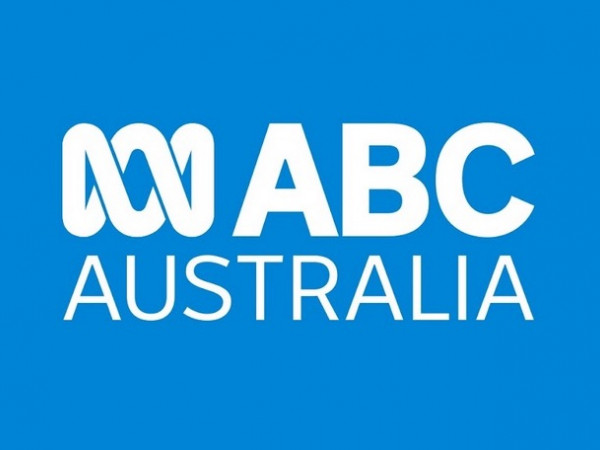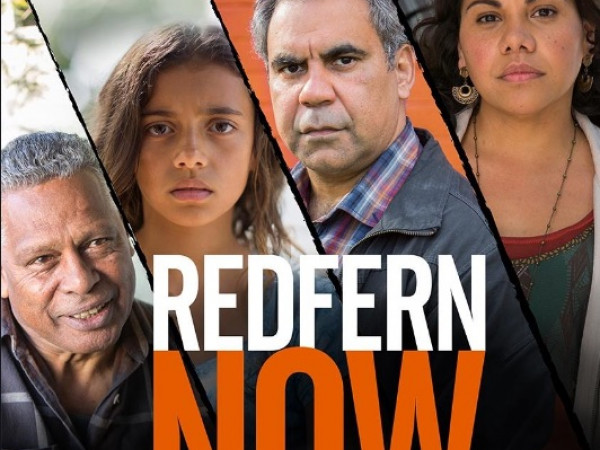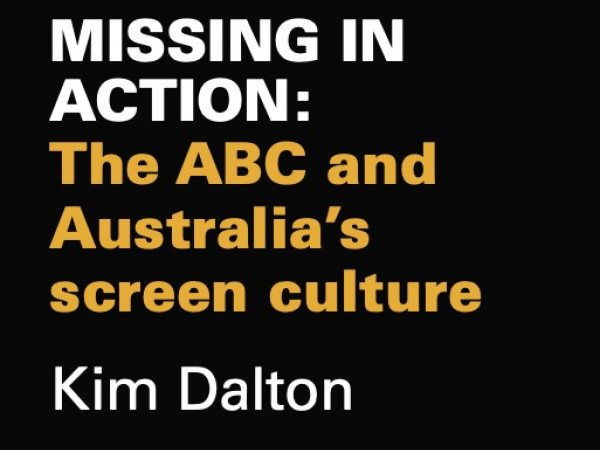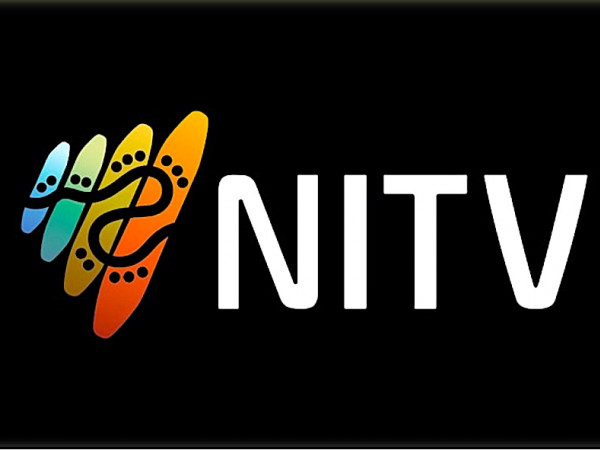Kim Dalton
“Those communities should have the resources to tell their stories at the same level as whitefellas…”
It was it was of its time, I suppose, and, you know, I was very I was quite engaged. I wasn't I was I was I wasn't at the centre of all that. I was engaged. I was engaged through my work at Open Channel at the time. And I was just generally interested in broadcast policy as well. So I was, you know, around at the very beginnings of CAAMA and we did some training work for CAAMA. And then… when CAAMA was, when they were seeking the licence for Imparja, I think I was an expert. I've got a vague memory of flying up to Alice Springs and being an expert witness at the, what at the time was the Australian Broadcasting Tribunal enquiry. So I was I was sort of familiar and I knew Freda [Glynn] a bit.
My… background was very much as a professional screen person. We didn't say screen in those days, but, you know, film and television as a professional person. And I was a great believer that there's a, there's a skills base to storytelling, and there's a craft base to making good film and television. And that was a tension within the community video movement and it was a tension within Open Channel. And when I became the director of Open Channel, I had very firm views about that. So, I was very open to the idea of workshops and training and all those sorts of issues… but I nonetheless, I saw Open Channel more as a pathway organisation, as … a gateway organisation, if you like, for people to develop certain skills, and then if they were interested to move into professional storytelling and professional production. And we supported that. And that has a relevance to the area you're looking at - the indigenous area - because I was a great believer… I mean, I think that there's no doubt that CAAMA and some of the other video organisations that existed, the Aboriginal Indigenous, or Aboriginal and Torres Strait Islander organisations, they were community video organisations, they were set up as community video organisations. They were about, they… there was all that… some of that sort of, dare I say, rhetoric – but… you know, that discourse around people controlling the media and controlling their own storytelling and, which is which is fine. But I also felt that those communities or people coming out of those communities should also have the…resources to tell their stories, whether it be via documentary or dramas, at the same sort of professional level … And that ultimately comes down to resources - at the same sort of level of resourcing as whitefellas.
Interestingly enough, I had nothing to do with the ABC, you know, looking at some of the conversations that were going on there, people talking about what was happening, ABC or wasn't happening in the ABC and how things were organised or weren't organised, I actually had nothing to do with the ABC from that point of view. So… none of that was, I wasn't familiar with, with that, albeit I arrived at the ABC in 2007 and to a certain extent, some things hadn't changed. So, yeah.
And I think that's where one of the most important initiatives in this whole area was through the Australian Film Commission back in - before my time. I don't lay claim to it, I picked it up and kept it going - but where they set up an Indigenous unit and the idea was to …give people the opportunity to develop that skills base and develop that those craft skills and storytelling skills, and become professional and enter that main professional mainstream, and start telling stories properly resourced or resourced, yeah properly resourced.
We're going to do it, and we're going to give them a budget of, I don't know what it was, half a million dollars or something like that. And we're going to employ an indigenous person to …run it.
Wal Saunders it was … a Melbourne based Aboriginal, was appointed to run it. And that's it. So, when I when I arrived, Wal was running it and Wal had, I don’t know, one, two, I don't know how many people we have working for him - probably a couple of people. Yeah, so I didn't need to stand up and make a statement saying that we're going to have Aboriginal people making Aboriginal films. I mean that was already happening…
And I decided that I wanted to get somebody running that unit who was, who had established credentials as a filmmaker. And I appointed someone called Sally Riley, who at that stage had made a… I think a wonderful short called [Confessions of a] Headhunter.
But Sally came to that unit with a commitment to training up a cohort of writers and directors and producers and DOPs - Indigenous people, whether they were from Central Australia, whether they are from urban Sydney or urban Melbourne. And that was the brief. And …we doubled the budget of the of the unit, because we…I felt that if you're going to do that, you've got to have money and you've got to be able to make things, properly funded. And we did that. So …I guess once again, I brought that perspective, which I alluded to before, which was that I felt that, I think that community media and providing communities with access to the tools of the media - that has a role. I'm not, I don't, I don't criticise that. That's fine. That has a role. But equally, you need, there needed to be strategies in place which said ‘We want, we want to train up, skills up, tool up our Indigenous community so that they can become part of our broader Indigenous independent filmmaking community, and have the same opportunities around storytelling that that other people in the Australian community did. And so that's what we did. The ABC wasn't doing that.
When I … went on to the ABC and we …and, you know, and I discovered the Indigenous unit there and I was introduced to it and and that was great. You know, there was some good people there and they were doing their work, but they were making a half hour magazine show that went to air at five thirty on a Saturday afternoon. I mean, you know, they were getting I don't know at the time we're getting 80 or 100,000 people watching it, whereas you could put primetime drama on it or primetime documentaries on ABC TV at eight thirty on a Sunday night, and you could get, you know, one, one and a half million people watching…It was a different, just a different scale of things.
You know, there was a real concern, not just…within the broader community, within the independent film community, but more broadly the Australian community, that the ABC’s drama output had just dropped to less than 10 hours a year or something like that. It was, it was shocking. And, and so we actually got some momentum around all that, and some momentum around a significant funding increase for that area of the ABC's output. And I made a commitment in the planning of all that, that that if we got that money, a certain percentage of it would go to the Indigenous area, and that we turned the Indigenous unit into an Indigenous department, and we'd have a head of that indigenous department. And the main brief for that Indigenous department would be that they would …have a commitment to producing a certain amount of primetime drama as well as documentaries every year. And so, when we got the money, I, I approached Sally again, who was still working at the Film Commission, and we worked very well together. I approached Sally again and said ‘How about you come across to the ABC?’
This is 2000… and 2008, I think by this stage - 2008, 2009, there wasn't a single indigenous drama writer who had written for primetime Australian television in Australia. There was, there was nobody.
I mean, the whole, the whole development process for Redfern Now, again you could speak to her about it rather than speaking to me about it, but the whole development process was - it was a workshop-based development process where they…I don’t know, went out and looked for people who were interested in being writers, and what sort of backgrounds they had, and what … credits or what work they'd done, and selected a group of people and then went into a properly, again, properly resourced …workshop process that ran across - again, I can't remember how long it went for, but it went for sort of like 12 months or something like that. And at the same time and at the same time, we were doing we were still working with the Film Commission on doing shorts as well, you know, doing short films. And then we had documentaries being made. So there was a general sort of increase, you know, significant increase in the in the output of productions at that time.
At the time that the debate was going on around NITV, I, I had some quite robust arguments at the time with some of the leading advocates of the funding of an Indigenous broadcaster. And I… felt that … standing back from it these days, I guess I’d take a probably a more - what's the word - whether it's a slightly more nuanced position these days, I think there's possibly is possibly a role for both. I felt very strongly at the time that what should…what the … argument should be about, and what the what the proposal should be about, should be about the funding and resourcing of indigenous storytelling on our mainstream media….
…insisting on some dedicated funding, but substantial dedicated funding as in as in 10, 15, 20, 25 million dollars put into an Indigenous screen fund for the ABC and for SBS and if necessary, 7, 9 or 10 to be getting stuff up into prime time, into the mainstream. I felt that quite strongly. I think NITV, there's no doubt NITV has done a really good job, and of fostering some new talent and - but they're hamstrung. I mean, it's I just, I think it's sort of irresponsible of the government of the time to get an NITV - I mean, ultimately, we said… we put in a proposal, the ABC put in a proposal, ABC TV put in a proposal when they did the enquiry. And in our proposal, we said we said about funding mainstream. But we said if you are going to fund an indigenous broadcaster, we reckon that it needs a budget about 90 to 100 million dollars a year. We did some costings and we said we think it needs about 90 to 100 million dollars a year so that it can commission across prime time drama, documentary, short films, magazine programmes and… the news programme, whatever - that's what it costs to run a TV station. It's an expensive medium. You need highly qualified, well-paid, trained people to do this. That's what it costs. I don't know what the NITV budget is, but it's tiny. It's absolutely tiny. And I, I just feel like what happens is it ends up being sidelined, that's all. And I'm not taking away anything from the people who run it, and do some interesting work and …no doubt are discovering some really interesting talent and some interesting storytellers. But there… you know, the long tradition in Australia, I'm afraid they're really under-resourced, really poorly resourced.
At the time of of writing, when I wrote that three years ago now, four years ago now, the whole of the TV division had had its budget significantly cut. And in the process of cutting the budget, the Indigenous Department had its budget cut. And as I understood, its budget was actually, its budget cut was disproportionately larger than some other areas of ABC TV, which is sort of predictable. That's historically what's happened since, for over many, many years.
I mean, that whole paper was reflecting on the unwillingness of the ABC to see as part of its role as the national broadcaster to engage with the broader screen production sector in Australia, independent screen production sector in Australia. And all I was doing is reflecting on the fact that part and parcel of that was to sort of squeeze and cut back on that whole Indigenous area.
At the time of publication, it received lots of very favourable commentary and there was a lot of enthusiasm around it. But I think we're just back to, I think we're sadly back in Australia, we've got a government which is sort of …just ideologically opposed to …the public broadcaster. And has … it’s suffered financially as a result.
My biggest concern is that at that, I think the Labour Party has just failed to come up with a sort of a coherent policy framework around the national broadcaster, including some sort of funding mechanism which… is far as possible, protects it from that cyclical increased funding and then decreased funding. And I think it's a great shame the Labour Party's failed to, within its policy framework, grapple with the role that the ABC as the public broadcaster should be playing in supporting and developing and promoting Australia's independent screen sector.




